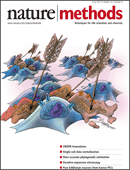 Post-publication peer review isn’t just for scientists. Newspaper reporters can help correct the scientific record, too.
Post-publication peer review isn’t just for scientists. Newspaper reporters can help correct the scientific record, too.
The U.S. Centers for Disease Control and Prevention (CDC) has corrected a journal article on Legionnaire’s disease after the Pittsburgh Post-Gazette revealed what seems to be efforts by the researchers to misrepresent their data.
In a series of articles last December, the newspaper raised questions about the CDC’s actions in the aftermath of outbreaks in 2011 and 2012 of Legionnaire’s that sickened 22 veterans, killing six. The Post-Gazette obtained emails from CDC scientists that appeared to reveal their disdain for the sterilization method the hospital had been using to suppress the growth of Legionella bacteria. That method, a copper-silver system, is widely considered to be effective. But according to the newspaper, the CDC investigators were so critical of the copper-silver disinfectant technology that the VA ultimately switched to a system based on chlorine. Continue reading Newspaper series prompts CDC to correct paper on Legionnaire’s disease







